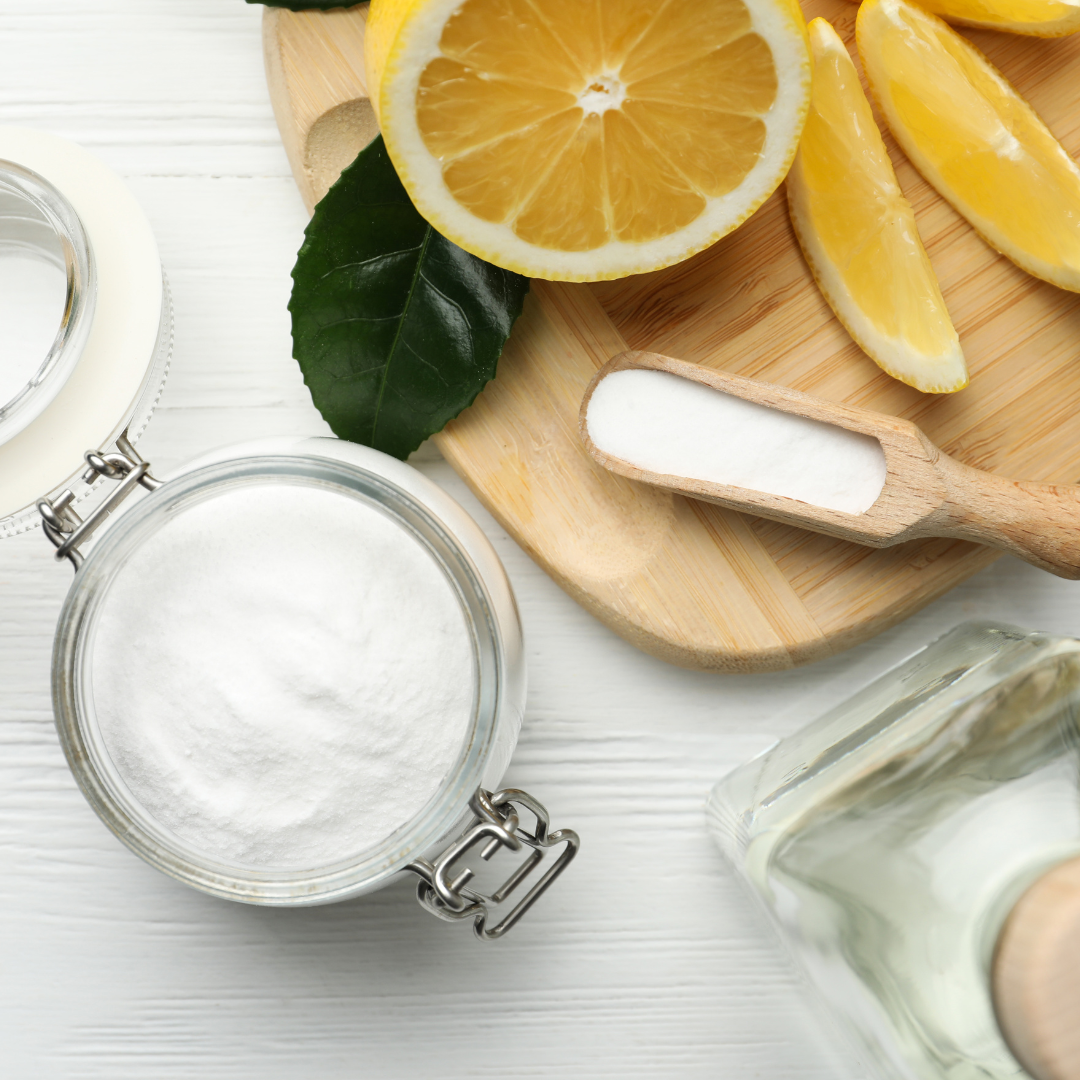As health-conscious individuals, we're all about making informed choices when it comes to the food we put into our bodies. One thing that really bugs me is those pesky pesticide residues on fruits and veggies. Sure, I'd love to buy all organic, but sometimes it's just expensive or hard to find. That's when two kitchen heroes step in: baking soda and white vinegar. These everyday items are said to work wonders in getting rid of those nasty pesticides. So, let's get into the nitty-gritty and see how they do it!
When it comes to washing produce and removing pesticides, both baking soda and white vinegar can be effective, but they have slightly different mechanisms of action. In a nutshell, vinegar is better at killing bacteria, while baking soda is better at removing dirt and wax and it is a better choice for washing produce that will be eaten raw.
Baking soda, also known as sodium bicarbonate, is mildly alkaline. It works by breaking down and removing certain types of pesticide residues, including those with acidic properties. Baking soda is particularly effective against pesticides with an acidic nature, such as organophosphates and some fungicides. It helps to degrade and neutralize these compounds, making them easier to wash off the surface of produce.
White vinegar, on the other hand, is mildly acidic. It can help in removing certain types of pesticides that are more susceptible to acidic conditions. Vinegar is effective against pesticides like glyphosate, a common herbicide used in agriculture. The acidity of vinegar helps to break down and dissolve the pesticide residues, facilitating their removal.
To compare the two methods, I like to consider the following factors:
Versatility: Baking soda can effectively remove a broader range of pesticides due to its alkaline nature, whereas white vinegar may be more effective against specific types of pesticides that are sensitive to acidic conditions.
Ease of use: Both baking soda and vinegar are readily available and easy to use. They can be mixed with water to create a solution for washing produce. Baking soda usually requires a higher concentration (around 1 teaspoon per 2 cups of water), while vinegar can be used in a milder concentration (around 1 part vinegar to 3 parts water).
Safety: Both baking soda and vinegar are generally safe to use on produce, as they are food-grade substances. However, it's important to rinse the produce thoroughly after using either method to remove any residual baking soda or vinegar.
Ultimately, the decision between the two comes down to your personal preference and the types of fruits and vegetables you regularly consume. Regardless of your choice, the important thing is that by using these natural methods, we take an active step towards making healthier choices for ourselves and our loved ones. So, the next time you find yourself standing before a pile of fresh produce, armed with your trusty kitchen warriors, embrace the power of informed decisions and enjoy your naturally washed and pesticide-free bounty! Happy, healthy eating!




Leave a Comment
This site is protected by reCAPTCHA and the Google Privacy Policy and Terms of Service apply.